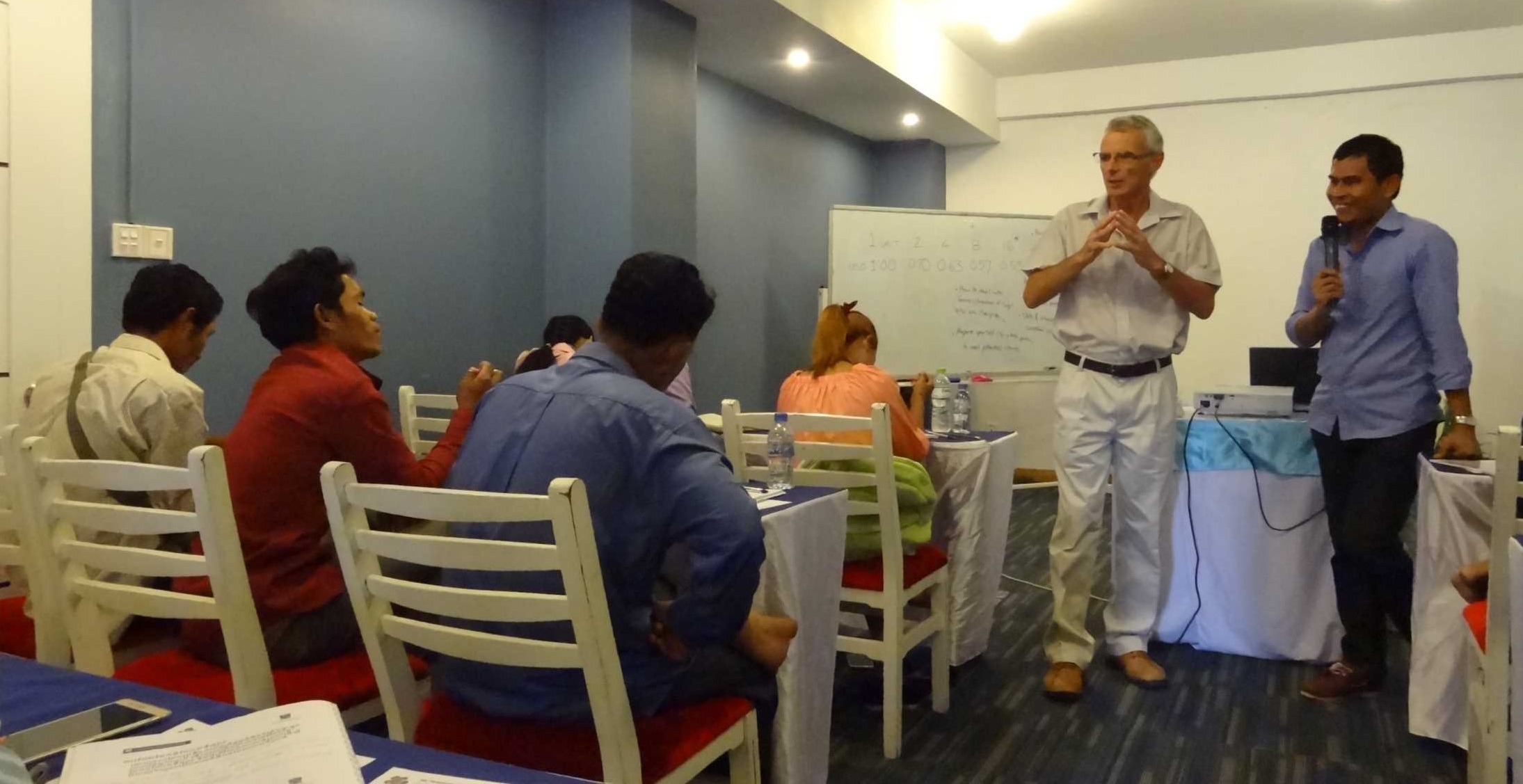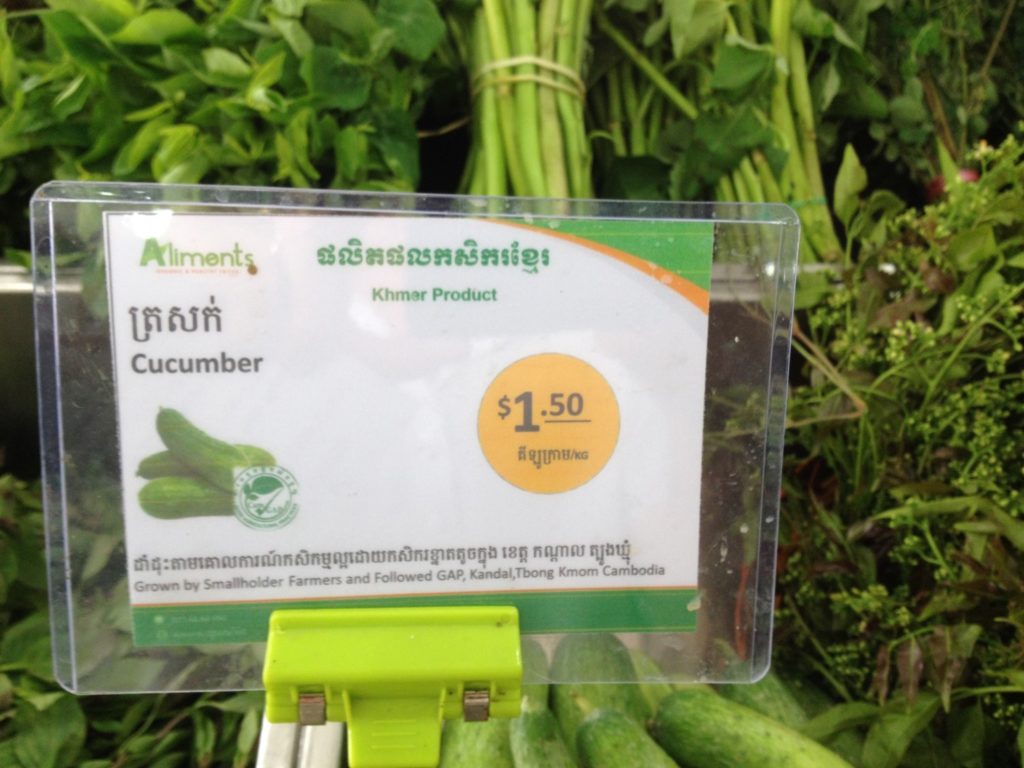

Marketing Training for Farmers & Retailers in Cambodia
April 27, 2017

We have previously reported on the importance of marketing and building enduring relationships for smallholder farmers. Traditionally, development agencies have focused their efforts on building linkages with supermarkets, food processors, distributors and exporters. However, with rising disposable household income, there is a growing demand among consumers to know where their food has come from, how it has been produced and to interact directly with producers. In the fresh produce industry, direct sales include:
- roadside or farm gate sales;
- U-pick operations;
- farmers markets;
- community supported agriculture schemes;
- gift baskets, mail orders and e-commerce; and
- direct sales to institutional users (cafes and restaurants).
To promote better relationships between smallholder farmers and the retailers of organic produce in Phnom Penh, two 2-day marketing workshops were conducted: one for the retailers and a second for the leadership groups drawn from collaborative marketing groups of smallholder farmers. The training was co-funded by the Crawford Fund, International Volunteers Yamagata (IVY) and Dr Peter Batt of Peter J Batt and Associates.

Forty-two participants were introduced to the key concepts of marketing before exploring in greater depth some of the issues associated with pricing, quality management and sales promotion. For the smallholder farmers, particular attention was given to the establishment and management of collaborative marketing groups, since without gaining some economies of scale and without being able to maintain the quality and continuity of supply, smallholder farmers were unable to build enduring long-term relationships with customers.
“For the smallholder farmers, its all about quality—and to maintain that, they need to form and learn how to manage collaborative marketing groups,” said Dr Batt.
The retailers tended to have no formal business training and no experience in marketing.
“For the retailers, the more they know about selling, the more successful they’re likely to be—and that’s important for the farmers as they now have a steady and reliable buyer who communicates with them regularly, advising them what to grow and when,” he said.
“Training of this nature is absolutely paramount in building enduring linkages between smallholder farmers and their downstream customers. With a greater understanding of how markets work, smallholder farmers have a greater opportunity to participate more equitably in high value markets. Improved communication between smallholder farmers and retailers is not only good for business, but it’s also good for the environment, as less product is wasted and fewer resources are utilised in products that no one wants to buy,” said Dr Batt.





